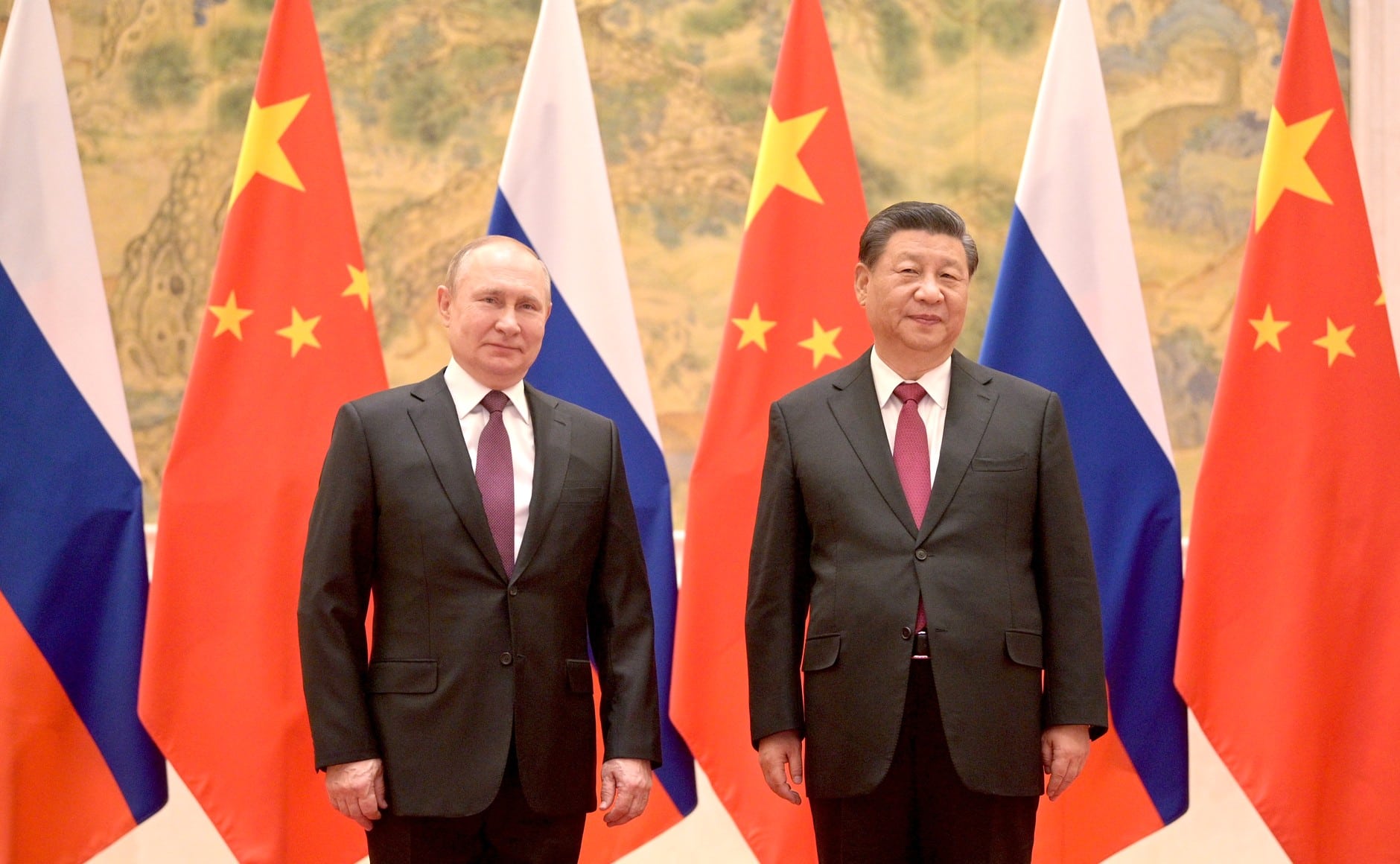
The presidents of Russia and China, Vladimir Putin and Xi Jinping, have issued a joint statement after a meeting surrounding the opening of the 2022 Winter Olympics in Beijing. In the statement, released on the website of the Kremlin on the 4th of February, the leaders underlined their solidarity, stressing the “unshakeable” nature of their strategic cooperation.
A large part of the statement is dedicated to the affirmation of their common goals regarding a wide range of topics, including global governance, sustainability, multipolarity and democracy. In a clear nod towards U.S. foreign policy, the two sides critiqued that “some actors … continue to advocate unilateral approaches to addressing international issues and resort to force.” The statement reiterates criticism in the media towards the interference “in the internal affairs of other states” and the infringement of “their legitimate rights and interests … hampering the development and progress of mankind, against the opposition from the international community.”
The document develops this critique to directly address NATO, whose “further enlargement” the two sides oppose. Russia and China “call on the North Atlantic Alliance to abandon its ideologized cold war approaches” and ask “to respect the sovereignty, security, and interests of other countries, the diversity of their civilizational, cultural, and historical backgrounds, and to exercise a fair and objective attitude towards the peaceful development of other States.”
With regards to the importance of democracy, the two states “share the understanding that [it] is a universal human value,” going even as far as claiming that they “as world powers with rich cultural and historical heritage have long-standing traditions of democracy, which rely on thousand-years of experience of development, broad popular support and consideration of the needs and interests of citizens.”
Both sides also stress their “dedication to the Paris agreement” and “the principle of common but differentiated responsibilities.” This includes the expectation “that developed countries will actually ensure the annual provision of $100 billion of climate finance to developing states.”
On the field of foreign politics, Russia “reaffirms its support for the One-China principle … and opposes any forms of independence of Taiwan,” while both countries “stand against attempts by external forces to undermine security and stability in their common adjacent regions” as well as opposing “colour revolutions.”
The two partners dedicate themselves to the edification of a multipolar world of their understanding, wherein Russia notes “the significance of the concept of constructing a ‘community of common destiny for mankind’ proposed by the Chinese side,” while China stresses “the significance of the efforts taken by the Russian side to establish a just multipolar system of international relations.”
Furthermore, they “intend to strongly uphold the outcomes of the Second World War and the existing post-war world order” and “resist attempts to deny, distort, and falsify the history of the Second World War.” The goal is “to prevent the recurrence of the tragedy of the world war” by condemning “actions aimed at denying the responsibility for atrocities of Nazi aggressors, militarist invaders, and their accomplices,” which would “besmirch and tarnish the honour of the victorious countries.”
Economically, the statement reaffirms their willingness “to link the development plans for the Eurasian Economic Union and the Belt and Road Initiative with a view to intensifying practical cooperation between the EAEU [Eurasian Economic Union] and China in various areas and promoting greater interconnectedness.”
In their meeting, Xi mentioned the intention to increase bilateral trade to $250 billion, while Putin spoke about promoting the use of national currencies in mutual settlements, which the Chinese side supported. They also discussed bilateral military-technical cooperation, mutual recognition of coronavirus vaccines, and the opening of borders depending on the epidemiological situation.
The commercial contracts signed during their meeting are related to the purchase and sale of natural gas via the Far Eastern route, and the purchase and sale of crude oil for delivery to oil refineries in Western China.
According to President Putin, the Chinese-Russian relationship had “taken on a truly unprecedented character,” while President Xi expressed the hope that the talks “will inject more vitality into China-Russia relations.”
Already on Thursday, February 4th, the U.S. announced potential consequences for Chinese companies trying to evade export controls on Moscow—part of a planned anti-Russian sanctions—in the event of Moscow’s Ukraine invasion. U.S. State Department spokesman Ned Price also issued a similar warning towards Russia, insisting that “if Russia thinks that it will be in a position […] to mitigate some of those consequences, by a closer relationship with [China], that is not the case.” On the contrary, he predicted “it will actually make the Russian economy, in many ways, more brittle.”
